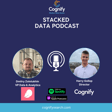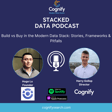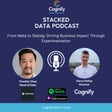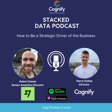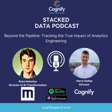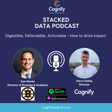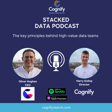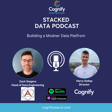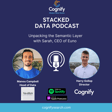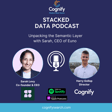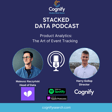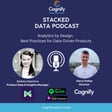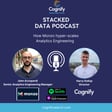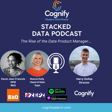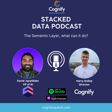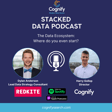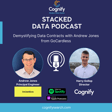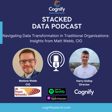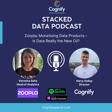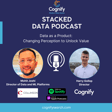
024 - Is AI coming for your job?
Is AI coming for data jobs?
Gaurav Tiwari, an Engineering Manager at Spotify, joining me on The Stacked Data Podcast. I first encountered Gaurav's insightful perspectives on AI at The London Analytics Engineering Meet-up, I had to get him on the show!
With a deep-seated passion for AI, Gaurav brings a critical eye to this rapidly evolving field. We dived deep into the implications of Generative AI on the data landscape and how it will impact your roles and responsibilities in data...
Gaurav, shares his thoughts on how AI will impact the life of a data professional…
In this episode, we cover:
✅ Understanding Generative AI
✅ GenAI at the Consumption Layer: Discussing how GenAI is reshaping the interaction between businesses and data through analytics.
✅ Benefits of GenAI in Analytics: Exploring the potential benefits GenAI could bring to self-serve analytics platforms.
✅ Challenges and Solutions: Identifying the biggest challenges when integrating GenAI into analytics processes and how to address them effectively.
✅ Strategic Investment and Pitfalls: Guidance for organisations on where to start their investments in GenAI and potential pitfalls to avoid.
✅ Data Engineering AI Impact:
✅ Challenges Specific to Data Engineering: Examining the unique challenges data engineers face when integrating GenAI and how to overcome them.
✅ Optimal Strategies for Implementation: Recommended strategies for adopting GenAI within data engineering teams and aligning methodologies with new tools.
✅ Tools and Technologies: Highlighting specific tools or technologies such as Infer, TurinTech AI and more
Gaurav's insights and expertise make this episode a must-listen for anyone interested in the evolving landscape of Generative AI and its impact on data analytics and engineering.
